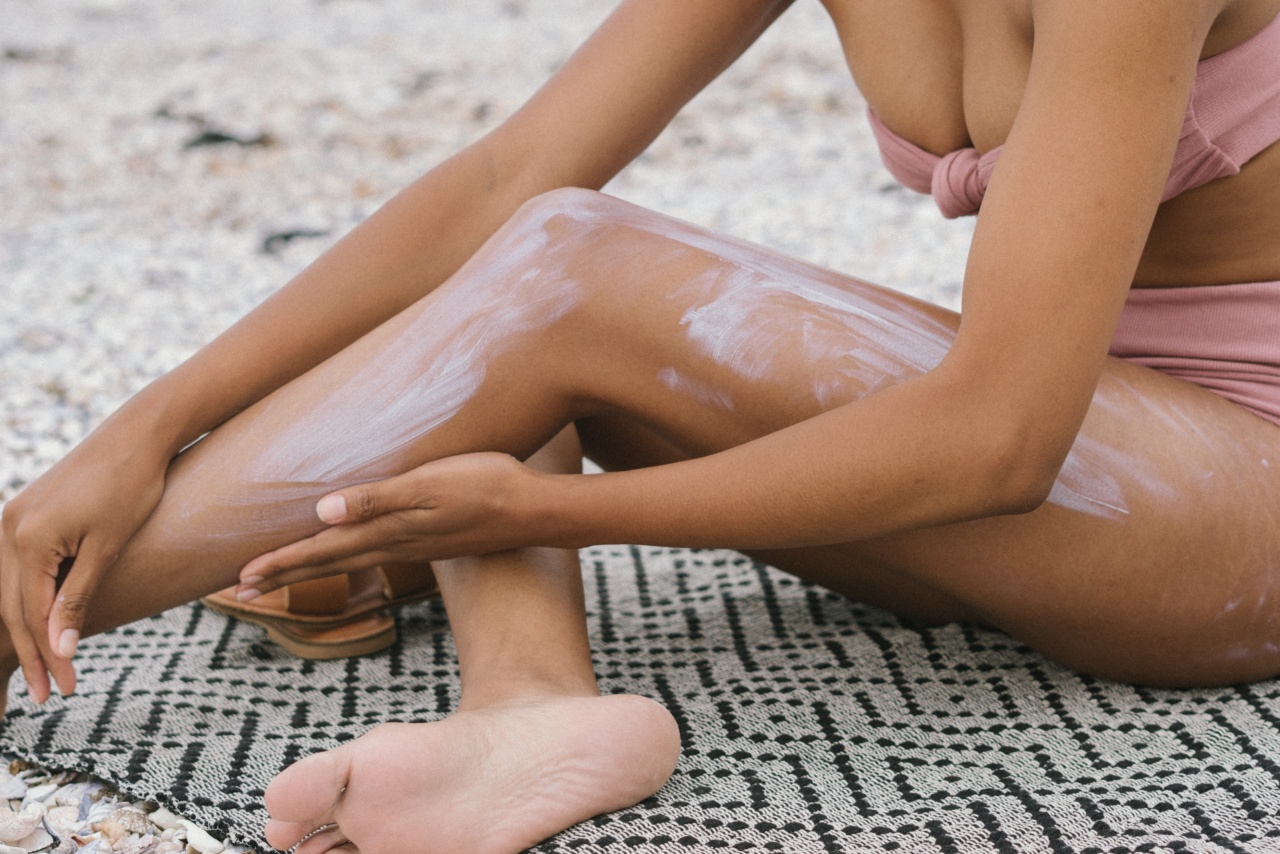The heat and humidity of summer can take a toll on your skin. Exposure to sunlight, sweat, and outdoor activities can cause a number of skin conditions.
With proper care, you can safeguard your skin against these conditions and enjoy a healthy and happy summer season. In this article, we will discuss some common summer skin conditions and ways to protect your skin.
Sunburn
Sunburn is the most common and well-known skin condition of summer. When your skin is exposed to the UV rays of the sun for too long, it can become red, painful, and inflamed. In severe cases, it can even cause blisters, fever, and chills.
To prevent sunburn:.
- Apply sunscreen with at least SPF 30, 20-30 minutes before sun exposure.
- Wear protective clothing such as a hat, long-sleeved shirts, and pants.
- Stay out of the sun during peak hours between 10 a.m. to 4 p.m.
Poison Ivy, Oak, and Sumac
The leaves of poison ivy, oak, and sumac contain a sap that can cause allergic reactions in some people. Contact with the plant can cause redness, rash, itching, and blisters. To avoid contact with these plants, follow these tips:.
- Wear long-sleeved shirts, pants, and gloves when hiking or gardening.
- Learn to identify the plants and avoid touching them.
- Immediately wash your skin with soap and water if you come into contact with the sap.
Heat Rash
Heat rash, also known as prickly heat, is a common condition caused by clogged sweat glands. It usually appears as red, itchy, and prickly bumps on the skin, particularly in areas of the body that are covered by clothing. To prevent heat rash:.
- Wear light, loose-fitting clothing in hot and humid weather.
- Take frequent breaks in a cool, air-conditioned place.
- Avoid using heavy creams and ointments that can clog your pores.
Fungal Infection
Fungal infections thrive in warm, moist environments. Summertime activities such as swimming, hiking, and gardening can increase the risk of fungal infection. Common fungal infections include athlete’s foot, jock itch, and ringworm.
To prevent fungal infections:.
- Avoid walking barefoot in public areas such as locker rooms and swimming pools.
- Wear shoes that allow your feet to breathe, and change your socks and shoes frequently.
- Keep your skin clean and dry, especially in areas prone to moisture like the groin and armpits.
Dehydration
Dehydration is a serious condition that can cause dizziness, fatigue, and dry skin. It is especially common during hot and humid weather when your body loses water through sweat. To stay hydrated:.
- Drink plenty of water throughout the day, even when you don’t feel thirsty.
- Avoid alcoholic and caffeinated beverages that can cause you to lose more fluids.
- Eat fruits and vegetables that have a high water content, such as watermelon, cucumber, and citrus fruits.
Insect Bites and Stings
Summer is the peak season for insects such as mosquitoes, bees, and ticks. Their bites and stings can cause itching, swelling, and pain. To protect yourself from insect bites and stings:.
- Use insect repellent containing DEET.
- Wear long-sleeved shirts and pants in areas with a lot of insects.
- Check for ticks after spending time outdoors, and remove them promptly using tweezers.
Dry Skin
Dry skin is a common problem in summer, especially after exposure to the sun and saltwater. It can cause itchiness, flakiness, and rough texture. To keep your skin hydrated:.
- Use a gentle, fragrance-free moisturizer after showering and swimming.
- Avoid taking hot showers that can strip your skin of its natural oils.
- Drink plenty of water to keep your skin hydrated from the inside out.
Swimmer’s Itch
Swimmer’s itch is a common skin condition caused by an allergic reaction to parasites in freshwater lakes and ponds. It usually appears as an itchy rash on the skin, especially in areas covered by swimwear. To prevent swimmer’s itch:.
- Avoid swimming in areas where freshwater snails are present.
- Rinse your skin with clean water a few minutes after leaving the water.
- Apply a barrier cream before entering the water.
Skin Cancer
Skin cancer is the most common type of cancer in the United States, and exposure to UV rays from the sun is the leading cause. To protect your skin from skin cancer:.
- Apply sunscreen with at least SPF 30, 20-30 minutes before sun exposure.
- Wear protective clothing such as a hat, long-sleeved shirts, and pants.
- Stay out of the sun during peak hours between 10 a.m. to 4 p.m.
Conclusion
Summer can be a fun-filled season, but it can also be harsh on your skin. By following these tips, you can protect your skin from the harmful effects of sun, heat, and insects.
Remember to stay hydrated, keep your skin clean and moisturized, and avoid prolonged exposure to the sun. If you experience any signs of skin condition, seek medical attention immediately.




























